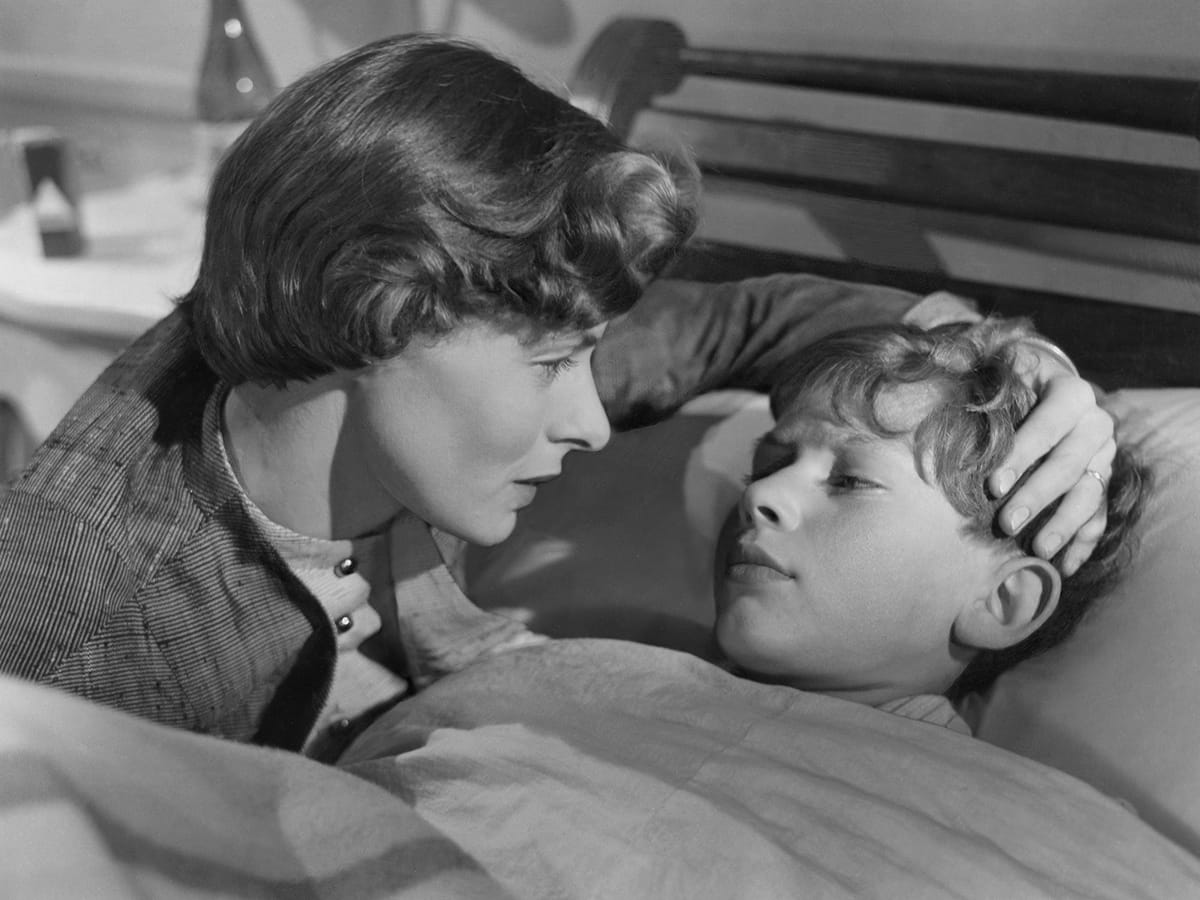Europe ’51

Ingrid Bergman plays a wealthy, self-absorbed Rome socialite racked by guilt over the shocking death of her young son. As a way of dealing with her grief and finding meaning in her life, she decides to devote her time and money to the city’s poor and sick. Her newfound, single-minded activism leads to conflicts with her husband and questions about her sanity. The intense, often overlooked Europe ’51 was, according to Rossellini, a retelling of his own The Flowers of St. Francis from a female perspective. This unabashedly political but sensitively conducted investigation of modern sainthood was the director’s favorite of his films.
Special Features
- New 2K digital restoration of the English-language version, with uncompressed monaural soundtrack on the Blu-ray edition
- New high-definition digital restoration of the Italian-language version, Europa ’51, with uncompressed monaural soundtrack on the Blu-ray edition
- Introduction by director Roberto Rossellini
- New interview with film critic Adriano Aprà
- New interview with film historian Elena Dagrada on the different versions of the film
- New interview with Rossellini and actress Ingrid Bergman’s daughters, Ingrid Rossellini and Isabella Rossellini (DVD)
- My Dad Is 100 Years Old, a 2005 short film directed by Guy Maddin and starring Isabella Rossellini (DVD)
- New interview with G. Fiorella Mariani, Rossellini’s niece, featuring Bergman’s home movies (DVD)
- The Chicken, a 1952 short film directed by Rossellini and starring Bergman (DVD)
- New English subtitle translation
Available In
Special Features
- New 2K digital restoration of the English-language version, with uncompressed monaural soundtrack on the Blu-ray edition
- New high-definition digital restoration of the Italian-language version, Europa ’51, with uncompressed monaural soundtrack on the Blu-ray edition
- Introduction by director Roberto Rossellini
- New interview with film critic Adriano Aprà
- New interview with film historian Elena Dagrada on the different versions of the film
- New interview with Rossellini and actress Ingrid Bergman’s daughters, Ingrid Rossellini and Isabella Rossellini (DVD)
- My Dad Is 100 Years Old, a 2005 short film directed by Guy Maddin and starring Isabella Rossellini (DVD)
- New interview with G. Fiorella Mariani, Rossellini’s niece, featuring Bergman’s home movies (DVD)
- The Chicken, a 1952 short film directed by Rossellini and starring Bergman (DVD)
- New English subtitle translation

Cast
- Ingrid Bergman
- Irene
- Alexander Knox
- George
- Ettore Giannini
- Andrea
- Giulietta Masina
- Passerotto
- Teresa Pellati
- Ines
- Marcella Rovena
- Mrs. Strada
- Alberto Plebani
- Mr. Strada
- Tina Perna
- Cesira
- Sandro Franchina
- Michel
- Maria Zanoli
- Mrs. Galli
- William Tubbs
- Professor Alessandrini
- Alfred Browne
- Priest
- Antonio Pietrangeli
- Psychiatrist
Credits
- Director
- Roberto Rossellini
- Produced by
- Roberto Rossellini
- Story
- Roberto Rossellini
- Screenplay
- Sandro De Feo
- Screenplay
- Mario Pannunzio
- Screenplay
- Ivo Perilli
- Screenplay
- Brunello Rondi
- Cinematography
- Aldo Tonti
- Music
- Renzo Rossellini
- Production manager
- Bruno Todini
- Editor
- Iolanda Benvenuti
- Production design
- Virgilio Marchi
- Set decoration by
- Ferdinando Ruffo
- Associate producers
- Dino De Laurentiis
- Associate producers
- Carlo Ponti


















